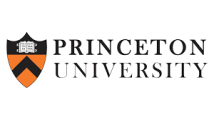Overview of Princeton University
Princeton University, originally founded as the College of New Jersey in 1746, is one of the oldest and most prestigious institutions of higher learning in the United States. Established by New Light Presbyterians with the intention of training ministers, the school first opened its doors in Elizabeth, New Jersey. It later moved to Newark and finally settled in Princeton in 1756. During this period, Nassau Hall was constructed and remains a central feature of the campus today.
Founding and Early History
Princeton’s early history was deeply influenced by the cultural and political currents of colonial America. During the American Revolution, Nassau Hall served as a barracks and battlefield and briefly functioned as the nation’s capital when the Continental Congress convened there in 1783. This period marked Princeton as a center for intellectual and political thought. Notable alumni from this era include James Madison, a principal architect of the U.S. Constitution, and John Witherspoon, a signatory of the Declaration of Independence and the university’s sixth president.
19th Century Expansion
Throughout the 19th century, Princeton expanded its academic programs and solidified its reputation under the leadership of visionary presidents. One of the most transformative was James McCosh, who served as president from 1868 to 1888. McCosh modernized the curriculum by introducing the study of natural sciences, modern languages, and philosophy, transforming Princeton from a religious college into a broader liberal arts institution.
Early 20th Century Developments
The early 20th century saw Princeton’s growth in both size and academic prestige. Woodrow Wilson, a Princeton alumnus and future 28th President of the United States, served as university president from 1902 to 1910. Wilson implemented reforms aimed at improving the educational system, including smaller class sizes, the establishment of academic departments, and the introduction of the preceptorial system. This system paired small groups of students with faculty members for personalized instruction, helping to shape Princeton’s distinctive undergraduate education approach.
Name Change and Graduate Education
In 1896, the College of New Jersey was officially renamed Princeton University to honor its host community. This change marked the institution’s expanded focus, now encompassing graduate education, research, and an international outlook. The establishment of the Graduate School in 1900 further strengthened Princeton’s academic offerings, providing advanced training in fields such as economics, politics, and history.
20th Century Growth
The 20th century brought immense growth for Princeton, establishing it as a global leader in research and education. Princeton’s faculty made significant contributions to physics, mathematics, and economics. Albert Einstein, one of the most renowned scientists, was a member of Princeton’s Institute for Advanced Study from 1933 to 1955. His presence, along with other leading intellectuals, solidified Princeton’s reputation as a premier center for scientific inquiry and scholarship.
Interdisciplinary and Public Service Focus
Princeton’s influence extended beyond the sciences into global thought. The Woodrow Wilson School of Public and International Affairs, now known as the Princeton School of Public and International Affairs, was established in 1930 and quickly became a leader in training future policymakers, diplomats, and public service professionals. Princeton has long championed interdisciplinary learning, encouraging students to address global challenges by crossing traditional academic boundaries.
Commitment to Public Service
Public service has been a defining feature of Princeton’s identity. The Pace Center for Civic Engagement encourages students to apply their knowledge and skills to serve communities locally and globally. This focus on leadership and service has helped Princeton produce graduates who have made significant contributions across various fields, including government, business, the arts, and sciences.
Recent Innovations
In recent years, Princeton has continued to innovate and expand its global academic influence. Significant investments have been made in engineering, computer science, and social sciences. The Princeton Neuroscience Institute and the Andlinger Center for Energy and the Environment are examples of cutting-edge research centers addressing some of the world’s most complex problems.
Distinctive Features
Princeton’s emphasis on undergraduate education remains one of its most distinctive features. With a low student-to-faculty ratio and the preceptorial system, students receive individualized attention from leading scholars. Princeton’s financial aid program is among the most generous globally, with a commitment to making education accessible to students from all backgrounds. In 2001, Princeton became the first U.S. university to replace loans with grants in its financial aid packages, ensuring graduates can leave debt-free.
Campus and Community
Princeton’s campus, known for its Collegiate Gothic architecture and beautifully landscaped grounds, provides an inspiring backdrop for academic exploration. Its proximity to New York City and Philadelphia offers students engagement with major cultural and professional hubs while enjoying the tranquility of a small college town.
Conclusion
Princeton University has been a leader in shaping the intellectual, political, and cultural landscape of the United States and the world. Its distinguished alumni include U.S. Presidents, Supreme Court Justices, and Nobel laureates, as well as leaders across various fields. Princeton’s legacy of academic excellence, public service, and innovative research continues to attract students and scholars from around the globe. As Princeton advances in the 21st century, it remains committed to its founding principles of educational excellence, service, and discovery. Its focus on interdisciplinary collaboration and nurturing the next generation of leaders ensures that Princeton will continue to play a vital role in global education.
Choosing Princeton University means joining a community that values intellectual rigor, creativity, and a commitment to making a difference. With its rich history, world-class faculty, and dedication to preparing students for leadership in a rapidly evolving world, Princeton remains one of the most esteemed universities globally.To learn more about this university click here.

